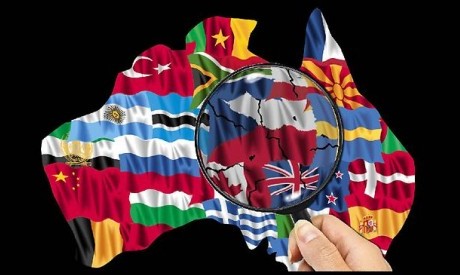2012 has been a telling year for multiculturalism in Australia. It began with the Opposition Spokeswoman for Citizenship, Teresa Gambaro, creating a furor with her call for immigrants to be schooled in wearing deodorant and how to queue.
The eminent neurosurgeon, Charlie Teo was then hassled for talking straight about racism in his Australia Day address, while a few days later our PM was bustled out of the Lobby restaurant during a protest by Indigenous and non-Indigenous supporters of the tent embassy.
All this and January hadn’t even finished. It’s no wonder then that on Harmony Day (March 21) this year, many Australians could be forgiven for asking how much harmony there is to go around.
Moments like those mentioned are not unlike lightning strikes at night. They illuminate, albeit briefly, the often hidden tensions, fears, struggles and anger in our multicultural society. However, despite the deluge of commentary such moments provoke, when the media cycle moves on, it’s questionable whether the underlying issues have been addressed.
In my mind this is part of the problem. Rarely do we have the space to sit with these issues, to look into their complexity and seek genuine solutions. The real solutions take time. They require not just well-argued ideas or sound policy, but the space for strong relationships to be formed across our diverse citizenry. You just can’t do that in a 30-second sound bite.
This became evident to me as I worked for two years as the Social Justice Co-ordinator for the Parramatta Diocese. It was a rewarding role that nevertheless revealed the many challenges of multiculturalism.
To illustrate, let me briefly explore a few of the challenges facing one community that I worked with – the Sudanese community. Now even before I start I’m tripping over myself. Sudan has hundreds of ethnic and tribal divisions and language groups. This means talk of ‘the Sudanese community’ (as if they are one bloc) is somewhat simplistic. Indeed, Sudan as a single country no longer exists.
Many from this diverse community will bring with them the trauma of a long-running civil war, dispossession and life in refugee camps. Formal education, along with so much else, will have been disrupted. They will then be flung into a society radically different from their own, often with key family members left behind, where the old order of strong family and community networks no longer seems to hold. Read more
Sources
- Evan Ellis in The Good Oil
- Image: Herald Sun
Additional reading
News category: Analysis and Comment.




